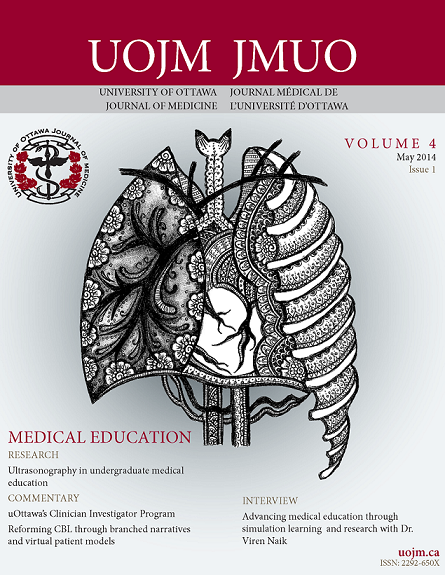Between a rock and a hard place: the incommensurate ethics of emotionally-related living organ donation
DOI:
https://doi.org/10.18192/uojm.v4i1.1037Keywords:
ERLOD, emotionally-related living organ donation, ethics, kidney transplantationAbstract
At the end of 2007, over 71,000 candidates in the United States were awaiting a kidney transplant. That same year, 16,622 kidney transplants took place [1]. The growing shortage of organs in the face of escalating need has placed pressure on transplant centers to accept organs from voluntary living donors. Emotionally- related living organ donation (ERLOD) is becoming increasingly common. In ERLOD, donors and recipients are genetically unrelated but linked by close emotional ties. In the case of kidney transplants, ERLOD achieved over 90% success rates after only one year [2]. However, the significant need and efficacy of this practice are not sufficient for its justification; this program must also be ethically acceptable [3]. Living organ donation in general raises concerns regarding the acceptable standards of medical practice and ERLOD in particular poses unique challenges. This article examines, within a clinical care framework, the ethical concerns surrounding ERLOD and why these concerns may be difficult to reconcile from this perspective alone. Discussion may benefit from using the ethical framework of clinical research in adjunction with the clinical care framework to offer a more flexible scope of analysis.Downloads
Published
2014-05-15
Issue
Section
Commentary
License
- Authors publishing in the UOJM retain copyright of their articles, including all the drafts and the final published version in the journal.
- While UOJM does not retain any rights to the articles submitted, by agreeing to publish in UOJM, authors are granting the journal right of first publication and distribution rights of their articles.
- Authors are free to submit their works to other publications, including journals, institutional repositories or books, with an acknowledgment of its initial publication in UOJM.
- Copies of UOJM are distributed both in print and online, and all materials will be publicly available online. The journal holds no legal responsibility as to how these materials will be used by the public.
- Please ensure that all authors, co-authors and investigators have read and agree to these terms.
- Works are licensed under a Creative Commons Attribution-NonCommercial-NoDerivatives 4.0 International License.


